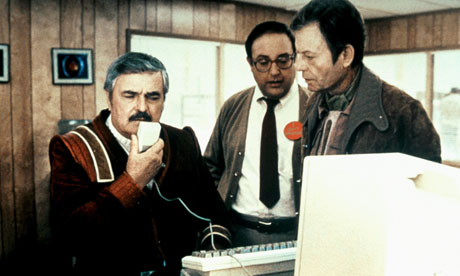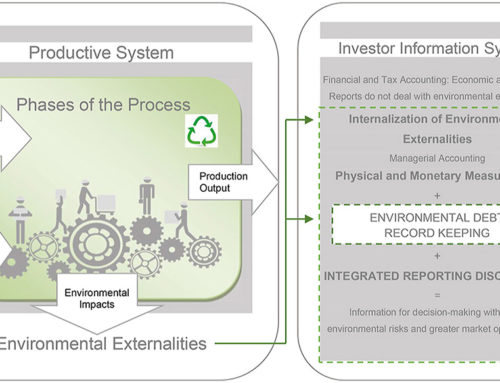First published in The Guardian, August 28th 2013
Captain Jean-Luc Picard: You know, Geordi, I spent the better part of my life exploring space. I have charted new worlds, I’ve met dozens of new species. And I believe that these were all valuable ends in themselves. And now it seems that… all this while, I was… helping to damage the thing that I hold most dear.
Lt. Commander Geordi La Forge: It won’t turn out that way, Captain. We still have time to make it better.
– from Star Trek: The Next Generation, “Force of Nature” (1993)
Spanning five decades and several generations, Star Trek has deeply influenced many of us. Each of its incarnations – six television series and 12 movies – opined about courage, humility, friendship, ambition, myriad social and political structures, problem solving and the environment.
The adherence to protection of every kind of species and habitat runs through all of Star Trek, and its principles give it great relevance to sustainability professionals of today. Here are some of Star Trek’s lessons for sustainability:
On biodiversity
Dr. Miranda Jones: I understand, Mr. Spock. The glory of creation is in its infinite diversity.
Mr. Spock: And the ways our differences combine, to create meaning and beauty.
– from Star Trek, “Is There in Truth No Beauty?” (1968)
Spock: To hunt a species to extinction is not logical.
Kirk: Ironic. When man was killing these creatures, he was destroying his own future.”
– from Star Trek IV: The Voyage Home (1986)
The Prime Directive, in essence, states: Don’t meddle in other planet’s peoples, history, culture or environment. This remains incredibly relevant to the world today. Our use of resources far and wide is wiping out species at an extraordinary rate (30% – 50% of all species may be extinct by midcentury) and destroying habitats, including oceans, forests and breathable cities and regions.
An earthbound Prime Directive for businesses trying to re-orient themselves might state: Don’t mess with the environment and its biodiversity.
Although some laws, such as the US Endangered Species Act, attempt to protect biodiversity in some places, they face constant attack by those interests that find protecting the planet unnecessary or inconvenient. That’s where the Star Trek lesson for accountants comes in. Until economic activity incorporates long-term impact in short-term pricing models, there will be no guardrail between our human habitat and a barren landscape.
On long-term thinking
Captain Spock: Two months ago, a Federation starship monitored an explosion on the Klingon moon, Praxis. We believe it was the result of overmining and insufficient safety precautions. The moon’s decimation means a deadly pollution of their ozone: They will have depleted their supply of oxygen in 50 Earth years. Due to the enormous size of their military budget the Klingons do not have the means to deal with this catastrophe. Last month, at the behest of the Vulcan ambassador, I opened a dialogue with Gorkon, Klingon chancellor of the High Council. He proposes to begin negotiations at once.
Admiral Cartwright: Negotiations for what?
Captain Spock: The dismantling of our starbases and outposts along the Neutral Zone, an end to nearly 70 years of unremitting hostility which the Klingons can no longer afford.
– from Star Trek VI: The Undiscovered Country (1991)
To uphold Star Trek’s exemplary values, corporations must take a new approach to research and development. One way to start would be for R&D geniuses, on-the-ground sourcing managers and financial officers connect their basic strategies. If they can unify long-term impact and natural resources protection across all corporate policy, sustainability professionals will become more effective and their lives will become more exciting.
Sometimes R&D might take the form of patent-pooling – even with corporate rivals – in order to solve a problem even more pressing than quarterly earnings (see the Prime Directive, above). GE’s and IBM’s engineers could likely help each other solve renewables’ storage limitations, for example, if they shared their thinking and basic approaches. Intellectual Property frameworks need transformation as much as basic business models.
We can do this. For God’s sake, the Federation made peace with the Klingons.
On bureaucracy
Dr. McCoy: The bureaucratic mentality is the only constant in the universe.
– from Star Trek IV: The Voyage Home (1986)
Star Trek weighs in, with utter disdain ,on those who use rules to trump common sense and courage. ‘Nuff said.
On innovation
Spock: The Kobayashi Maru scenario frequently wreaks havoc on students and equipment. As I recall you took the test three times yourself. Your final solution was, shall we say, unique?
Kirk: It had the virtue of never having been tried.
– from Star Trek II: The Wrath of Khan (1982)
In my years of working with business to solve truly difficult problems, I have always been inspired by engineers’ creativity of engineers. Once senior management says “figure something out, this is a priority”, company engineers become demons of invention.
Chief Engineer Scott’s problem-solving technique for teleportation offers the same lesson as Starfleet Academy’s no-win scenario, Kobayashi Maru. Just as smart negotiators do, it’s always a good idea to look at a problem from a different perspective or perhaps even redefine the problem. For example, Scotty learned – from Spock’s visit from the future – how he arrived at his transwarp teleportation invention: he changed the variables.
Scotty: The notion of transwarp beaming is like trying to hit a bullet with a smaller bullet whilst wearing a blindfold, riding a horse. Scotty: What’s that? Spock: Your equation for achieving transwarp beaming. Scotty: [reads the equation] Imagine that! It never occurred to me to think of SPACE as the thing that was moving! – from Star Trek XI: The Future Begins (2009) Picard: Come back! Make a difference! Kirk: I take it the odds are against us and the situation’s grim. Picard: You could say that. Kirk: If Spock were here, he’d say that I was an irrational, illogical human being for going on a mission like this… Sounds like fun! – Star Trek: Generations (1994) Perhaps the most vexing piece of the sustainability puzzle is that there is so very much to change. Right now, the laws of nature and the rules of business are in direct collision and, for those trying to right the ship, the waters are rough. What to do first? What is money well spent? What could bankrupt the company and what are the risks we must take? None of these questions have simple answers. Perhaps Star Trek’s reverence for redefining a problem is the real solution. Many of Star Trek’s missions include ambition on a glorious scale, and that is certainly needed now. All of us who work in any form of business are familiar with the extraordinarily high expectations to function sustainably in a globalized world. Really, incredibly high expectations are upon us. Captain Picard: It is possible to commit no errors and still lose. That is not a weakness. That is life. – from Star Trek: The Next Generation, “Peak Performance” As sustainability professionals, we have to weave in the reality of high risk/high reward that is the new operating landscape for global business, as do our corporate accounting counterparts. And corporations also must leave room for failure. Just as venture funds often don’t like investing with entrepreneurs who haven’t failed, big multinationals must find a new tolerance for risk as new business models are created. Tell your bosses what Jean-Luc said. Courage is as important as creativity if we are to protect our magnificent earthly home. Mr. Spock: “There’s an old Vulcan proverb: only Nixon could go to China. – from Star Trek VI: The Undiscovered Country (1991) Tough businesspeople are the best candidates to alter the world’s economic and environmental trajectory. Those of us who are not brilliant engineers or scientists can become the courageous managers, investors, implementers and politicians who manifest these important changes and scale them appropriately. Sustainable businesses must combine Star Trek’s glorious ambition with its absolute humility toward nature. Nothing except for nature can transform the world as swiftly as businesses can. Amy Larkin is the author of Environmental Debt: The Hidden Costs of a Changing Global Economy and the former director of Greenpeace Solutions.On tackling the big stuff
On risk
On working with business





